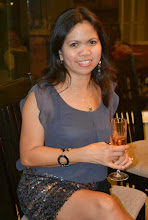 Halloween.
Halloween. How this had start? History traces Halloween back to the ancient religion of the Celtics in Ireland. The Celtic people were very conscious of the spiritual world and had their own ideas of how they could gain access to it - such as by helping their over 300 gods to defeat their enemies in battle, or by imitating the gods in showing cleverness and cunning.
"Their belief is that during this day the normal order of the universe is suspended, the barriers between the natural and the supernatural are temporarily removed, the sidh lies open and all divine beings and the spirits of the dead move freely among men and interfere sometimes violently, in their affairs" (Celtic Mythology, p. 127).The Celtic priests who carried out the rituals in the open air were called Druids, members of pagan orders in Britain, Ireland and Gaul, who generally performed their rituals by offering sacrifices, usually of crops and animals, but sometimes of humans, in order to placate the gods; ensuring that the sun would return after the winter; and frightening away evil spirits. To the Celtics, the bonfire represented the sun and was used to aid the Druid in his fight with dark powers. The term bonfire comes from the words "bone fire," literally meaning the bones of sacrificed animals, sometimes human, were piled in a field with timber and set ablaze. All fires except those of the Druids were extinguished on Samhain and householders were levied a fee to relight their holy fire which burned at their altars. During the Festival of Samhain, fires would be lit which would burn all through the winter and sacrifices would be offered to the gods on the fires. This practice of burning humans was stopped around 1600, and an effigy was sometimes burned instead.
Trick-or-Treat?
Some trace the origins of present day "trick-or-treat" to Samhain, which was the supreme night of demonic jubilation. Spirits of the dead would rise out of their graves and wander the countryside, trying to return to the homes where they formerly lived. Frightened villagers tried to appease these wandering spirits by offering them gifts of fruit and nuts. They began the tradition of placing plates of the finest food and bits of treats that the household had to offer on their doorsteps, as gifts, to appease the hunger of the ghostly wanderers. If not placated, villagers feared that the spirits would kill their flocks or destroy their property.
The problem was... if the souls of dead loved ones could return that night, so could anything else,human or not, nice or not-so-nice. The only thing the superstitious people knew to do to protect themselves on such an occasion was to masquerade as one of the demonic hoard, and hopefully blend in unnoticed among them. Wearing masks and other disguises and blackening the face with soot were originally ways of hiding oneself from the spirits of the dead who might be roaming around. This is the origin of Halloween masquerading as devils, imps, ogres, and other demonic creatures.Others trace "trick-or-treat" to a European custom called "souling". Beggars would go from village to village begging for "soul cakes" made out of square pieces of bread with currants. The more soul cakes the beggars would receive, the more prayers they would promise to say on behalf of the dead relatives of the donors. At the time, it was believed that the dead remained in limbo for a time after death, and that prayer, even by strangers could guarantee a soul's passage to heaven.In many parts of Britain and Ireland this night used to be known as 'Mischief Night', which meant that people were free to go around the village playing pranks and getting up to any kind of mischief without fear of being punished. Many of the different customs were taken to the United States by Irish and Scottish immigrants in the nineteenth century, and they developed into 'trick or treat'.
For more educational research:
History of Halloween
Orgin of Halloween

No comments:
Post a Comment